ERP for Aerospace and Defense
ERP systems can boost productivity, efficiency, quality and compliance for aerospace manufacturers and defense companies. There are many choices when it comes to ERP software for aerospace and the market can be confusing.
At ERP Research, we help aerospace companies to find the best ERP software for their specific business and industry requirements.
Top 10 ERP Systems For Manufacturing
Learn everything you need to know about the best ERP solutions for manufacturers in our detailed solution comparison report. We compare top manufacturing ERP software such as SAP, Microsoft, Oracle and more.
Aerospace and Defence ERP for Small Businesses
Small and medium sized (SME) manufacturing firms need ERP systems which are cost effective, fast to implement and scalable.
Many manufacturing organizations have adopted ERP solutions such as these to handle their growth efficiently:
Infor CloudSuite Industrial (Syteline)
Infor CSI is a popular ERP solution for small and medium sized manufacturing companies in discrete and process manufacturing industries. See how Infor compares.
SAP Business One
A versatile ERP for aerospace and defense, offering industry-specific modules, integration, real-time analytics, and automation, enhancing efficiency and compliance.
Oracle Netsuite
A cloud-based ERP designed to streamline operations, boost productivity, with robust inventory management and real-time analytics, ideal for aerospace and defense.
Odoo
Odoo is an open source ERP platform which has been used by small and fast growing manufacturing organizations looking to unify their processes from shop floor to manufacturing execution and beyond.
SAP Business ByDesign
A complete, cloud-based ERP designed for mid-sized aerospace and defense businesses, with strong capabilities in project management and real-time analytics.
Microsoft Dynamics Business Central
Microsoft Dynamics 365 Business Central is used by SMB & SME manufacturers to cater for industry specific manufacturing industry challenges and requirements.
SYSPRO ERP
SYSPRO is a popular ERP solution for small business manufacturers in multiple industries, with a variety of process and discrete manufacturing capabilities.
Acumatica
Cloud-based ERP providing comprehensive tools for aerospace and defense manufacturers including project accounting, compliance management, and inventory control.
IFS Applications
Combines ERP, EAM and service management for aerospace & defense. It supports digital twins, predictive maintenance, and agile production capabilities.
Epicor
Robust ERP offering features like project management, supply chain automation, and real-time analytics designed for aerospace and defense manufacturing.
QAD Systems
QAD Systems is a popular ERP solution for small business manufacturers in multiple industries, with a variety of process and discrete manufacturing capabilities.
SYSPRO
SYSPRO is a strong ERP solution for manufacturers in the small and medium-sized business space and is used by worldwide brands to manage production, sales orders and supply chain management.
Global Shop Solutions
Global Shop Solutions is an ERP specificially designed for small and medium sized manufacturing companies and provides flexibility and deep production capabilities at a low cost - both On-Premise and in the Cloud.
Aerospace ERP Software for Large Enterprises
What are some of the best ERP systems for large manufacturers? See our highlighted best ERP software solutions for large manufacturing companies below:
SAP S/4 HANA
Advanced ERP using real-time analytics, AI, machine learning to optimize manufacturing, supply chain, and logistics for the aerospace and defense sector.
Microsoft Dynamics 365
Highly customizable ERP offering integration, intelligence, and business applications to support the unique needs of the aerospace and defense industry.
Oracle ERP Cloud
Oracle ERP Cloud is a popular ERP solution amongst manufacturers, particularly in process industries. ERP Cloud offers integrated functionality across large enterprises including supply chain, production, HCM, financials and more.
Manufacturing ERP Requirements Template
Speed up your ERP requirements gathering process with our free manufacturing ERP functional requirements template.
Cloud ERP for Aerospace
What are some of the best Cloud ERP systems for aerospace and defense manufacturing? Here are our top picks:
SAP S/4 HANA
SAP S/4 HANA is one of the best Cloud ERP for manufacturing and is used by many manufacturing companies in the food, discrete, automotive and other manufacturing industries. This Cloud ERP solution is available in private or public Cloud deployments.
Microsoft Dynamics 365
Microsoft Dynamics 365 is a robust Cloud ERP for manufacturing system which comes in several editions built for small and large businesses alike. Dynamics is one of the best Cloud ERP for manufacturing, available in both private and public Cloud.
Oracle ERP Cloud
Oracle ERP Cloud is a popular ERP solution amongst manufacturers, particularly in process industries. ERP Cloud offers integrated functionality across large enterprises including supply chain, production, HCM, financials and more.
SAP Business ByDesign
SAP Business ByDesign is a fully SaaS Cloud ERP for manufacturing solution that serves as a stable solution with over 30 out of the box processes for manufacturing firms.
Oracle Netsuite
Netsuite has become a popular ERP system choice for small and medium manufacturers that are looking for a Cloud based ERP system to manage growth across sales, production, supply chain, inventory and financials.
Infor CloudSuite Industrial (Syteline)
Infor CSI is a popular Cloud ERP solution for small and medium sized manufacturing companies in discrete and process manufacturing industries. See how Infor compares.
Infor CloudSuite Industrial
Infor CloudSuite Industrial ERP (Enterprise Resource Planning) is a comprehensive suite of business applications. It can be highly beneficial for aerospace companies as this sector demands precise engineering, regulatory compliance, and efficient production processes. Here's how Infor CloudSuite Industrial ERP can help:
-
Streamlined Operations: Through its integrated applications, CloudSuite Industrial can help aerospace companies streamline their operations, right from procurement to production and final delivery. This is essential for aerospace companies that often handle complex, long-term projects.
-
Supply Chain Management: Aerospace manufacturing relies on a diverse and global supply chain. The ERP system can help manage supplier relationships, track the supply of critical components, and ensure timely procurement to avoid production delays.
-
Regulatory Compliance: Aerospace industry is subject to numerous regulations, such as ITAR, FAA, and AS9100. The ERP suite can help in maintaining compliance records, managing certifications, and ensuring that production processes adhere to industry standards.
-
Project Management: The ERP can aid in managing intricate aerospace projects by scheduling resources, monitoring budgets, and ensuring timely completion. It also provides tools to anticipate and mitigate project risks.
-
Quality Management: Quality control is a critical aspect of aerospace production. The ERP system can help in quality management through real-time monitoring, data analysis, and the implementation of corrective actions to maintain high product quality.
-
Research and Development (R&D) Support: R&D is crucial in aerospace. The system can manage R&D budgets, timelines, and resources, and can facilitate data collection and analysis necessary for innovation.
-
Inventory Management: Efficient inventory management is necessary to reduce costs. The ERP system can optimize inventory levels by tracking the usage of components and forecasting demand.
-
Maintenance Management: Aerospace companies need to meticulously maintain their equipment to avoid downtime. Infor CloudSuite Industrial helps plan and schedule maintenance and track the history and status of equipment.
-
Customer Relationship Management (CRM): The suite helps in managing relationships with customers which is critical in the aerospace sector due to long sales cycles and high-value contracts. CRM features can help in managing leads, sales, and after-sales support effectively.
-
Business Intelligence and Reporting: It offers business intelligence tools that can help aerospace companies analyze data and gain insights into their operations. This can help in making informed decisions and improving operational efficiency.
-
Financial Management: Managing finances is critical for any business. The ERP can automate financial operations, improve financial reporting, and provide insights for better budgeting and forecasting.
-
Scalability and Flexibility: Being cloud-based, Infor CloudSuite Industrial offers scalability and flexibility, allowing aerospace companies to easily expand or scale down resources as per their needs. This is particularly beneficial for companies that deal with fluctuating market demands.
-
Collaboration and Communication: It facilitates collaboration between different departments and locations, which is essential in the global and complex environment in which aerospace companies operate.
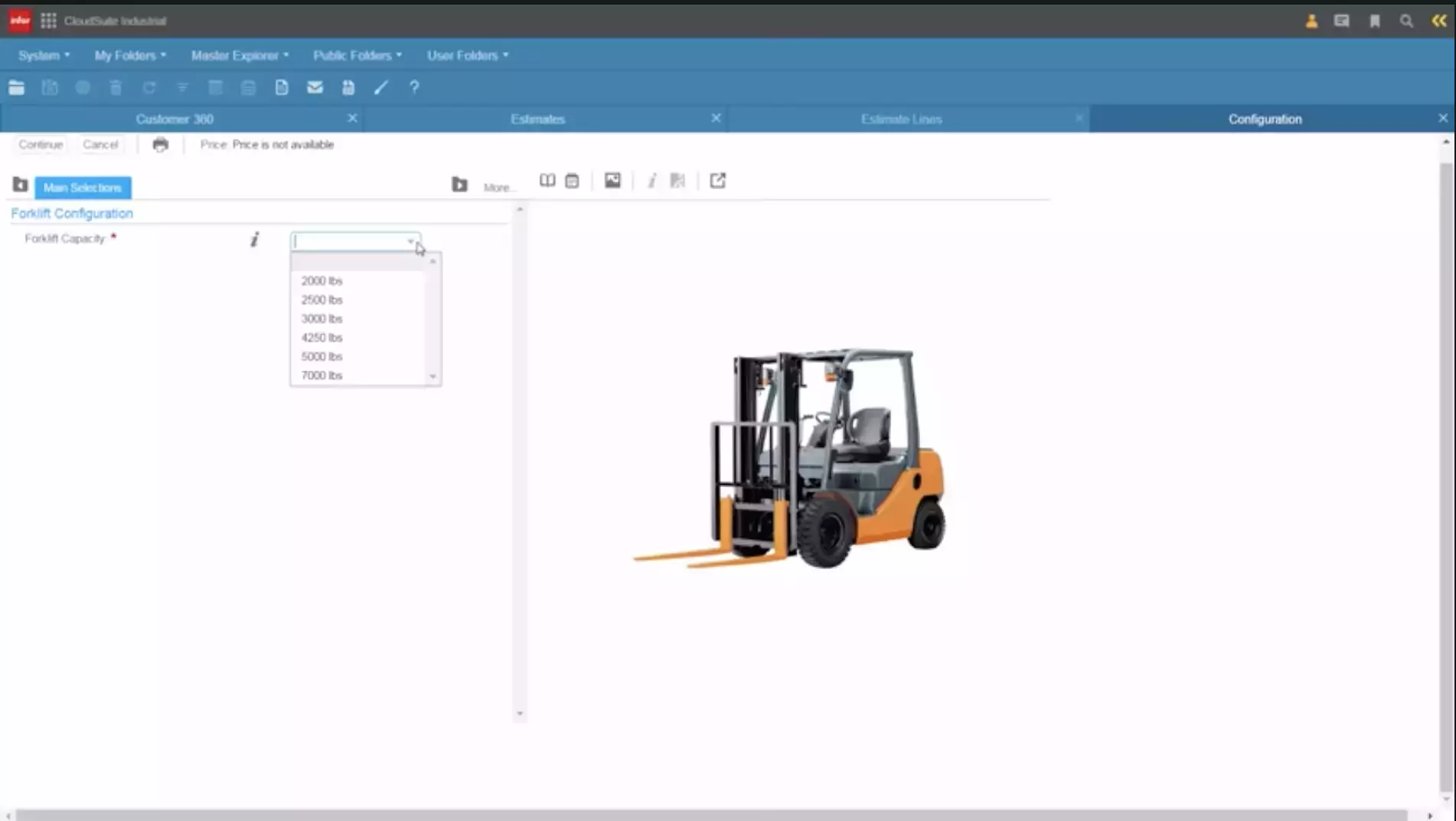
SAP Business One
SAP Business One is another popular ERP system designed to streamline business processes and improve organizational efficiency. For aerospace companies, which have to manage complex supply chains, comply with stringent regulations, and ensure high-quality production, SAP Business One can offer a plethora of features and benefits:
-
Supply Chain Management: Aerospace companies often rely on a complex network of suppliers. SAP Business One provides tools to manage and optimize the supply chain by tracking suppliers, materials, and costs, ensuring timely procurement, and analyzing supplier performance.
-
Production Planning and Control: It offers features for planning, scheduling, and monitoring production processes. This helps aerospace companies in managing the production of complex components, reducing lead times, and ensuring the efficient utilization of resources.
-
Inventory Management: SAP Business One can help aerospace companies maintain optimal inventory levels, track the movement of goods, and minimize holding costs. This is crucial for managing the wide range of components used in aerospace manufacturing.
-
Quality Management: The software can help ensure the high quality required in aerospace products by tracking production processes in real-time, enabling quality checks, and maintaining documentation required for regulatory compliance.
-
Project Management: Managing long-term, complex aerospace projects requires robust tools. SAP Business One allows companies to monitor project progress, allocate resources efficiently, manage budgets, and ensure timely completion.
-
Regulatory Compliance: Aerospace industry has to adhere to strict regulations. SAP Business One can help in ensuring compliance with regulations like ITAR, FAA, EASA, and AS9100 by managing documentation, monitoring changes in regulations, and helping with audits.
-
Financial Management: SAP Business One provides comprehensive financial management tools that can help in managing accounting, controlling costs, monitoring budgets, and ensuring financial compliance, which is essential for the financial health of aerospace companies.
-
Customer Relationship Management (CRM): Managing relationships with customers and partners is critical in aerospace. SAP Business One’s CRM features can help in managing leads, sales, contracts, and after-sales support efficiently.
-
Business Intelligence and Reporting: Aerospace companies generate a lot of data. SAP Business One’s business intelligence and reporting tools help in analyzing this data, gaining insights, and making data-driven decisions to optimize operations.
-
Human Resources Management: Managing human resources is crucial in aerospace, where skilled labor is vital. The system can help in HR functions like recruiting, training, payroll, and performance management.
-
Mobility and Remote Access: With SAP Business One, users can access data and perform tasks remotely through mobile devices. This adds flexibility and ensures that employees can work efficiently even when they are not on-site.
-
Integration Capabilities: SAP Business One can be integrated with various third-party applications and tools, enabling aerospace companies to have a seamless experience across different platforms, which is crucial for managing complex projects.
-
Scalability: As an aerospace company grows, SAP Business One can scale along with it. Additional modules can be added and resources can be allocated as needed to meet the changing requirements.
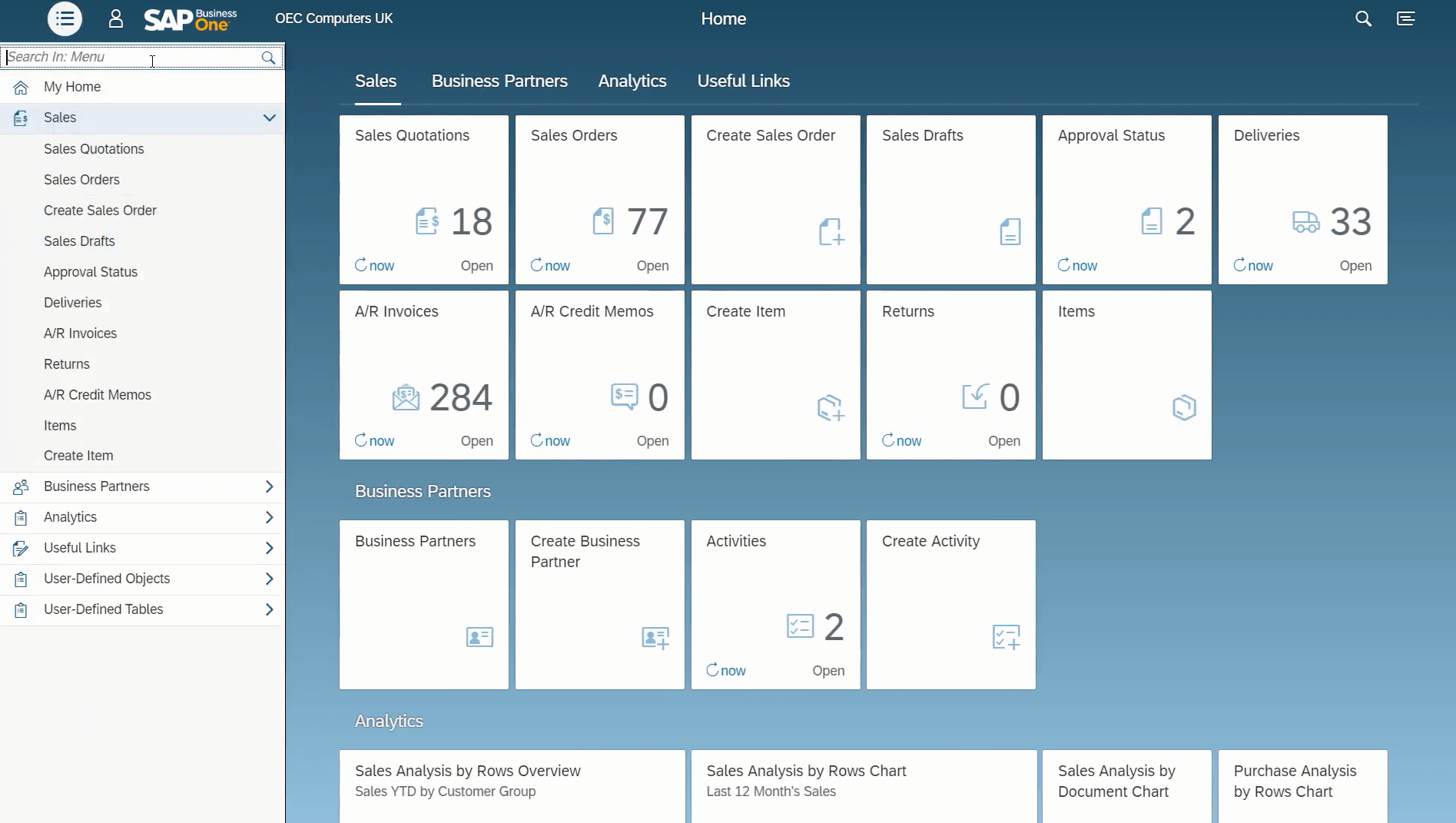
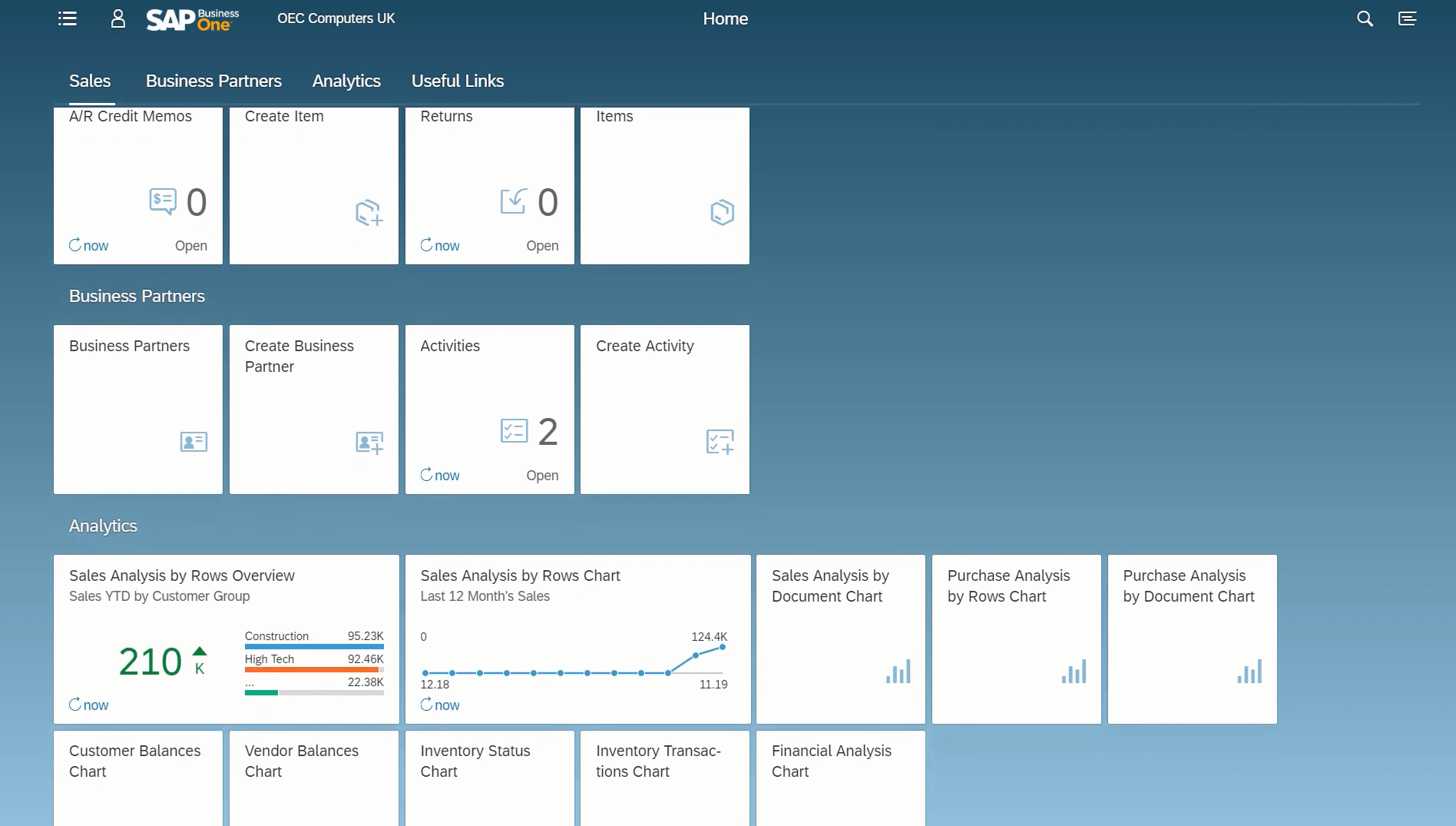
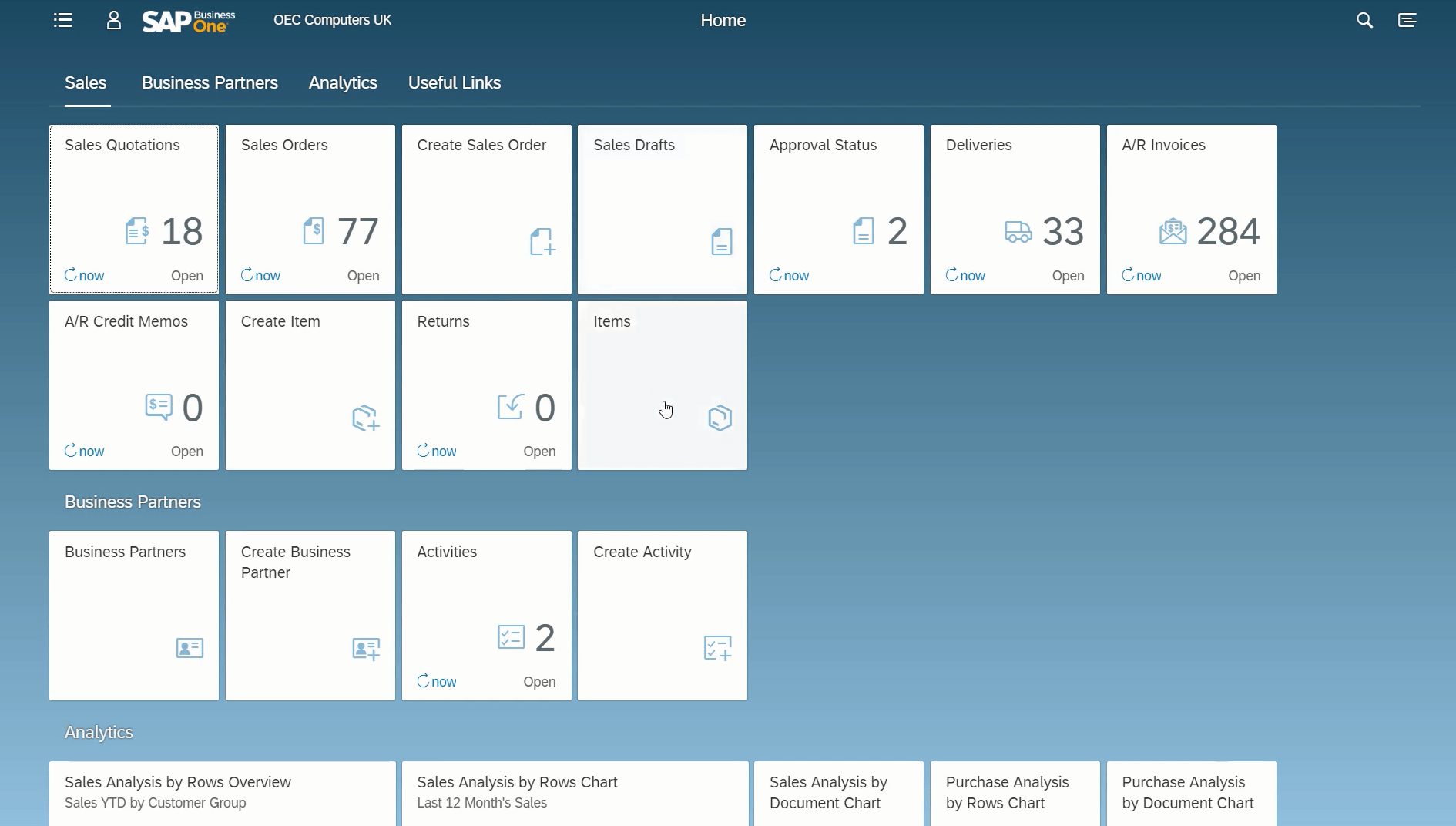
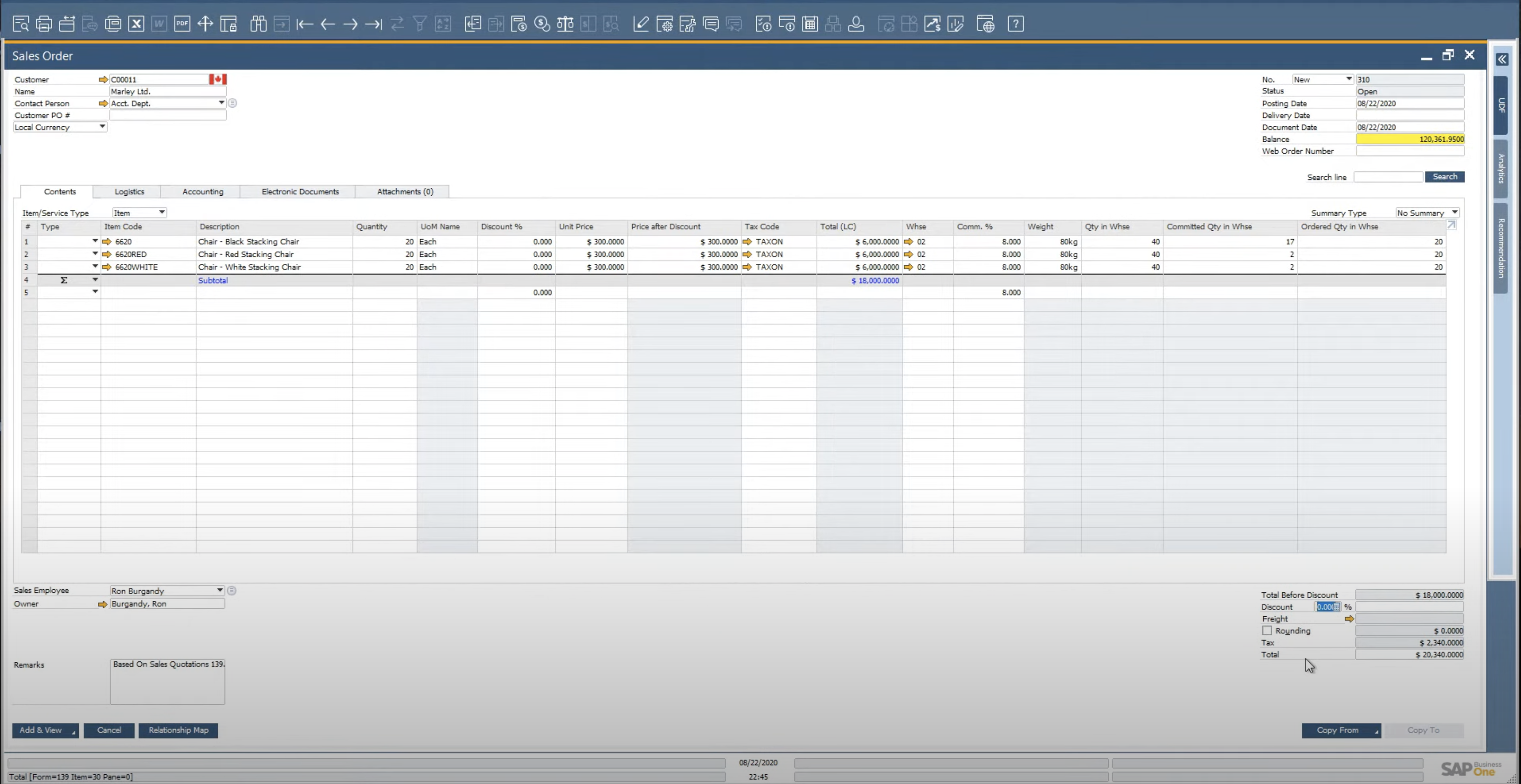
Epicor Kinetic
As a comprehensive and powerful ERP solution, Epicor Kinetic is designed to meet the complex requirements of industries such as aerospace. Here are some ways in which Epicor Kinetic can benefit aerospace companies:
-
Streamlined Production Management: Epicor Kinetic offers robust tools for production planning and control, from job scheduling and sequencing to real-time shop floor data collection. This can help aerospace manufacturers efficiently manage complex production processes and schedules.
-
Quality Assurance and Compliance: Epicor Kinetic provides comprehensive quality management features, enabling aerospace companies to maintain rigorous quality control processes and adhere to industry-specific standards such as AS9100. It also assists in traceability, documentation, and audit trails, which are critical for regulatory compliance.
-
Supply Chain Management: The system offers supply chain management features to help track and manage the complex, global supply chains typical in the aerospace industry. This includes purchase management, supplier performance analysis, and inventory control.
-
Advanced Material Management: Epicor Kinetic aids in the efficient management of materials and inventory, essential in aerospace manufacturing where multiple components are required. It supports real-time tracking of materials and ensures optimal levels of inventory.
-
Project Management: Epicor Kinetic provides project management tools to help track and manage intricate aerospace projects. This includes managing timelines, resources, costs, and milestones, ensuring projects are completed on time and within budget.
-
Financial Management: The system provides a suite of financial management tools for efficient accounting, budgeting, forecasting, and cost control. This is crucial for the financial health and profitability of aerospace companies.
-
Customer Relationship Management (CRM): Aerospace companies often have long-term, high-value contracts with clients. Epicor Kinetic's CRM tools can help manage these relationships effectively, from managing leads and sales processes to delivering excellent customer service.
-
Human Capital Management: The system also offers HR management tools to help recruit, develop, and retain the skilled workforce needed in the aerospace industry.
-
Business Intelligence and Analytics: Epicor Kinetic comes with powerful analytics and reporting tools. Aerospace companies can use these to gain insights into their operations, make data-driven decisions, and improve performance.
-
Product Lifecycle Management (PLM): Managing the lifecycle of aerospace products is crucial due to their complexity and longevity. Epicor Kinetic's PLM tools can help manage all stages of a product’s lifecycle, from design to end-of-life.
-
Scalability and Cloud Deployment: Epicor Kinetic can be deployed on-premise or in the cloud, providing scalability and flexibility. This is especially beneficial for aerospace companies that need to quickly adapt to changing market conditions.
-
Integration Capabilities: Epicor Kinetic can be integrated with various third-party applications, ensuring seamless workflows and improved efficiency across the organization.
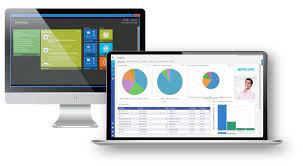
Acumatica
Acumatica is a comprehensive, cloud-based ERP solution designed to manage all key business functions of small and midsize businesses. In the context of aerospace companies, Acumatica offers several features and benefits that can assist with their complex operational needs:
-
Manufacturing Management: Acumatica offers a manufacturing suite designed to optimize production and shop floor operations, which is essential for aerospace companies with their intricate and precise production processes.
-
Supply Chain Management: Acumatica provides robust supply chain management capabilities that allow aerospace companies to manage and monitor their supply chain operations, procurement, and supplier relationships effectively, which is vital in an industry with a complex and global supply chain.
-
Quality Management: Quality assurance is a top priority for aerospace companies due to stringent industry standards. Acumatica's quality management system allows for quality checks, inspection routines, and non-conformance reporting, helping ensure the highest level of quality in their products.
-
Project Accounting: Acumatica's Project Accounting module can be highly beneficial for aerospace companies that often manage complex, long-term projects. The system allows for tracking project costs, revenues, and profitability in real time, helping companies stay on budget and manage resources effectively.
-
Inventory Management: Acumatica's inventory management capabilities ensure aerospace companies have real-time visibility into their inventory levels, enabling efficient stock control, and minimizing carrying costs.
-
Customer Management: Aerospace firms often engage in long-term contracts with high-stakes customers. Acumatica's customer management suite helps manage these relationships effectively, providing tools for lead management, sales automation, and after-sales service.
-
Compliance Management: Aerospace companies are subject to various industry-specific regulations. Acumatica can assist in managing the required documentation and ensuring compliance with these regulations.
-
Financial Management: Acumatica offers a strong financial management suite with capabilities for general ledger, accounts payable/receivable, cash management, and financial reporting. This helps aerospace companies manage their finances efficiently and make informed financial decisions.
-
Business Intelligence and Reporting: Acumatica's powerful BI and reporting tools provide real-time data and insights to help aerospace companies make data-driven decisions, identify operational bottlenecks, and improve their overall performance.
-
Scalability and Cloud-Based Flexibility: Acumatica is built on a flexible and scalable platform, allowing aerospace companies to grow and adapt their ERP system as per their changing needs. Being cloud-based, it also enables remote access to the system, facilitating collaboration and productivity.
-
Integration Capabilities: Acumatica can seamlessly integrate with a wide range of other software solutions, providing a cohesive platform for managing all aspects of an aerospace company's operations.

Plex Manufacturing Cloud
Plex Manufacturing Cloud is a cloud-based ERP solution designed primarily for manufacturing businesses, providing real-time, shop floor-focused features. For aerospace companies, with their high precision, complex processes, and rigorous regulatory requirements, Plex Manufacturing Cloud offers numerous benefits:
-
Real-Time Production Management: Plex provides real-time visibility into production operations, allowing aerospace companies to monitor and manage complex production processes more effectively. This helps improve productivity, reduce waste, and streamline operations.
-
Quality Management: Plex provides a comprehensive Quality Management System (QMS) that supports the stringent quality assurance and control standards of the aerospace industry. It allows for real-time monitoring, immediate feedback, and integration with production processes to maintain the highest quality levels.
-
Supply Chain Management: Plex Manufacturing Cloud helps manage complex, global supply chains typical of the aerospace industry. It can manage supplier relationships, track materials, and optimize procurement to ensure a smooth, efficient supply chain.
-
Inventory Management: Plex's inventory management capabilities ensure that aerospace companies have real-time visibility into their inventory levels. It allows efficient tracking and control of inventory, from raw materials to finished goods, helping minimize carrying costs and avoid production disruptions.
-
Compliance Management: Plex helps manage the rigorous compliance requirements of the aerospace industry. It can aid in maintaining the necessary documentation, tracking changes to regulatory requirements, and ensuring adherence to standards such as AS9100 and ITAR.
-
Integrated MES (Manufacturing Execution System): Plex offers an integrated MES, providing real-time production and machine data, which is especially beneficial for aerospace manufacturers to minimize downtime, enhance productivity, and ensure effective utilization of assets.
-
Financial Management: Plex's financial management suite includes capabilities for accounting, financial planning, and analysis. This helps aerospace companies manage their financial operations effectively, control costs, and make informed financial decisions.
-
Customer and Sales Management: Plex offers customer and sales management tools that help manage relationships with customers effectively, track sales orders, manage contracts, and offer excellent customer service. This is particularly crucial for aerospace companies that often deal with high-value, long-term contracts.
-
Business Intelligence and Analytics: Plex's BI and analytics capabilities provide insights into various operations of an aerospace company, helping identify opportunities for improvement, streamline operations, and make data-driven decisions.
-
Cloud-Based and Scalable: Plex Manufacturing Cloud, being a cloud-based solution, offers scalability, flexibility, and reduced IT overheads. It allows aerospace companies to quickly adapt to changing market conditions and business growth.
-
Integration Capabilities: Plex can be seamlessly integrated with other applications, providing a unified platform for managing all aspects of aerospace company operations.
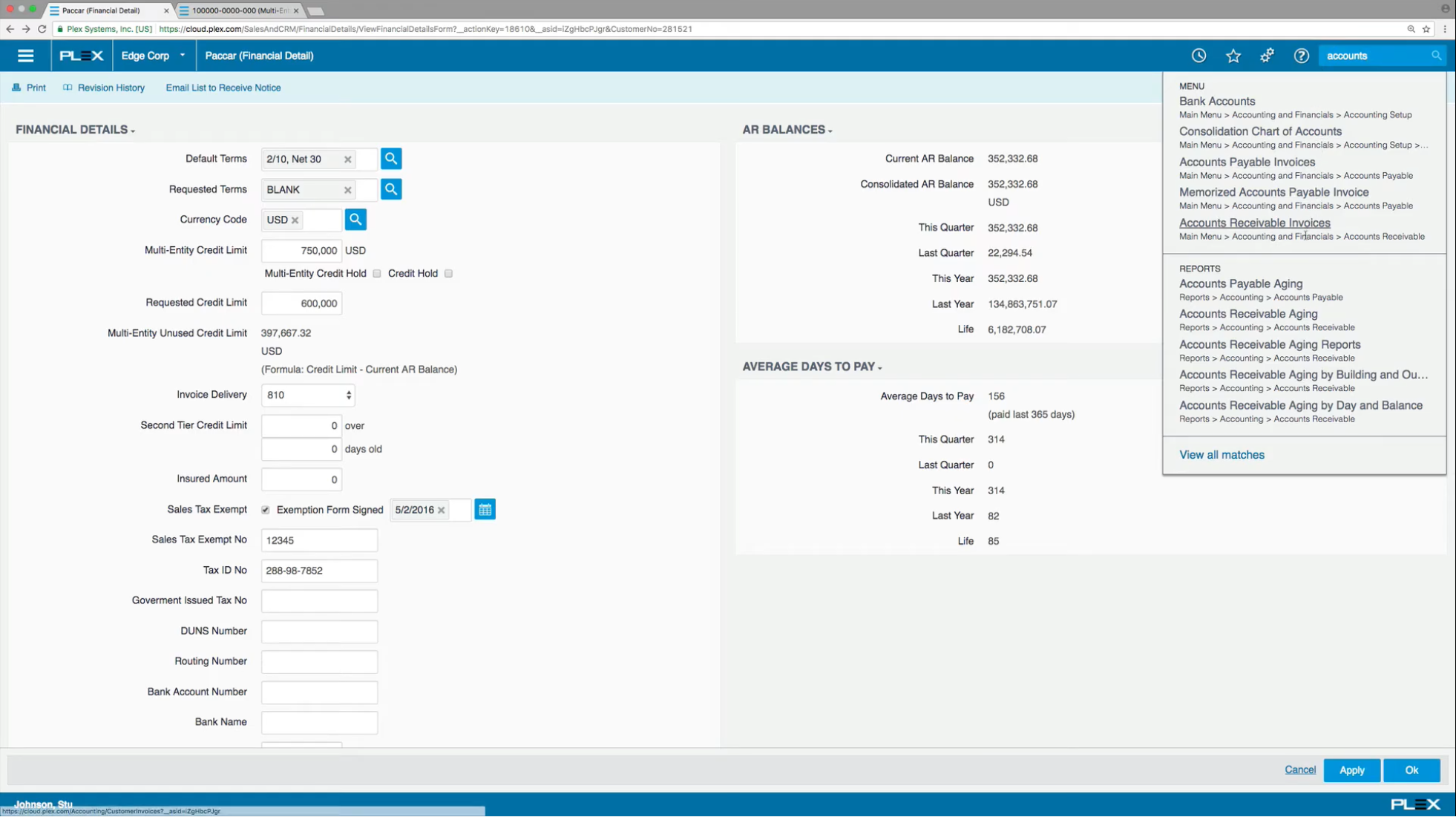
SAP S/4 HANA
SAP S/4HANA is an enterprise resource planning (ERP) software solution that is designed to help businesses streamline their operations and improve their decision-making capabilities. It is built on the SAP HANA in-memory database, which provides real-time access to data and enables advanced analytics and reporting.
For manufacturing businesses, SAP S/4HANA can be used to manage their production processes, supply chain operations, and financial management. The solution offers a range of modules that can be tailored to meet the specific needs of different manufacturing businesses, including:
-
Production Planning: The Production Planning module allows manufacturers to plan their production schedules based on customer demand, available resources, and inventory levels. This module also enables manufacturers to optimize their production processes to minimize waste and improve efficiency.
-
Materials Management: The Materials Management module provides manufacturers with real-time visibility into their inventory levels, enabling them to optimize their supply chain operations and ensure that they have the right materials on hand to meet production demand.
-
Quality Management: The Quality Management module allows manufacturers to track the quality of their products throughout the production process, from raw materials to finished goods. This module also provides manufacturers with the tools they need to identify and address quality issues before they impact customer satisfaction.
-
Financial Management: The Financial Management module provides manufacturers with real-time visibility into their financial performance, allowing them to make informed decisions about investments, cost control, and revenue generation.
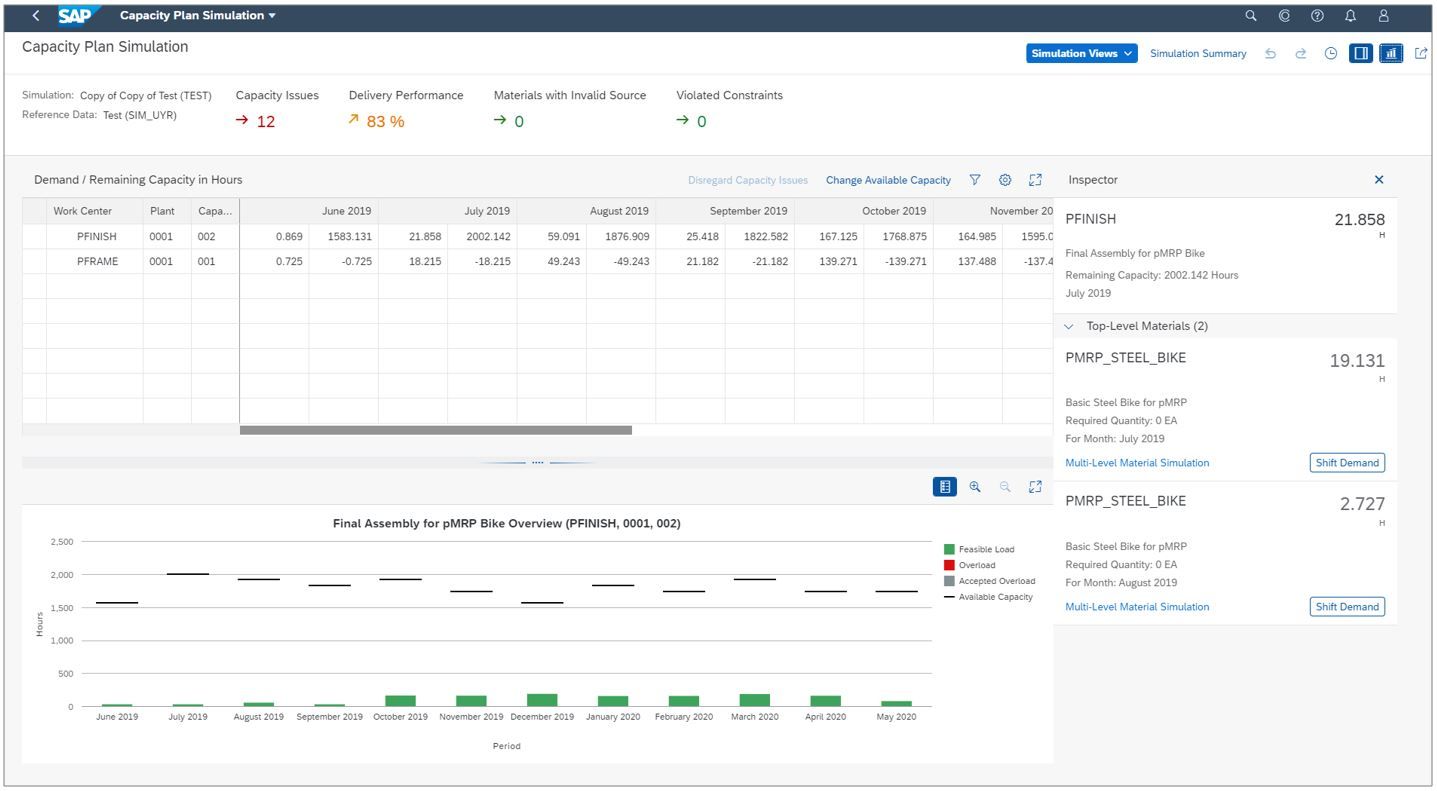
Microsoft Dynamics 365
Microsoft Dynamics 365 is a suite of intelligent, cloud-based business applications that combines CRM and ERP capabilities to manage various business functions. Here's how Microsoft Dynamics 365 can benefit aerospace companies:
-
Integrated Business Operations: Dynamics 365 provides a unified view of business processes from manufacturing, supply chain, sales to finance, helping aerospace companies streamline operations, improve efficiency, and enhance collaboration across different departments.
-
Real-time Analytics and Insights: Leveraging the power of Microsoft's AI, Dynamics 365 can process and analyze data in real-time, providing actionable insights. This can help aerospace companies make data-driven decisions, forecast trends, and identify areas for improvement.
-
Supply Chain Management: Dynamics 365 Supply Chain Management module helps manage and optimize supply chain operations. It offers features like procurement, inventory management, warehouse management, and logistics, crucial for aerospace companies with complex global supply chains.
-
Production Management: Dynamics 365's production control capabilities allow aerospace companies to optimize manufacturing processes, schedule resources efficiently, and monitor production in real-time, helping to increase productivity and reduce costs.
-
Quality Management: With Dynamics 365, aerospace companies can manage the quality of their products effectively. It supports quality testing, non-conformance reporting, and helps maintain compliance with industry-specific quality standards.
-
Project Management: Dynamics 365 Project Operations module provides robust project management tools for planning, scheduling, and tracking complex projects, often a requirement in aerospace companies.
-
Customer Relationship Management (CRM): Dynamics 365 Sales and Customer Service modules help manage customer relationships, track sales, and deliver excellent customer service. This can enhance customer satisfaction and loyalty, particularly important for aerospace companies dealing with high-value contracts.
-
Financial Management: Dynamics 365 Finance provides robust financial management capabilities, helping aerospace companies to manage their financial operations, control costs, and maintain compliance with financial regulations.
-
Human Resource Management: Dynamics 365 Human Resources helps manage talent effectively, offering tools for recruitment, onboarding, training, and performance management, which are key to managing a skilled workforce in the aerospace industry.
-
Field Service Management: Dynamics 365 Field Service helps manage installation, maintenance, and repair services effectively, which can be crucial in the aerospace industry.
-
Scalability and Flexibility: Being a cloud-based solution, Dynamics 365 provides the flexibility and scalability aerospace companies need to adapt to changing business needs.
-
Integration Capabilities: Dynamics 365 can seamlessly integrate with other Microsoft products like Office 365, Power BI, and Azure, providing a cohesive and familiar environment for users.
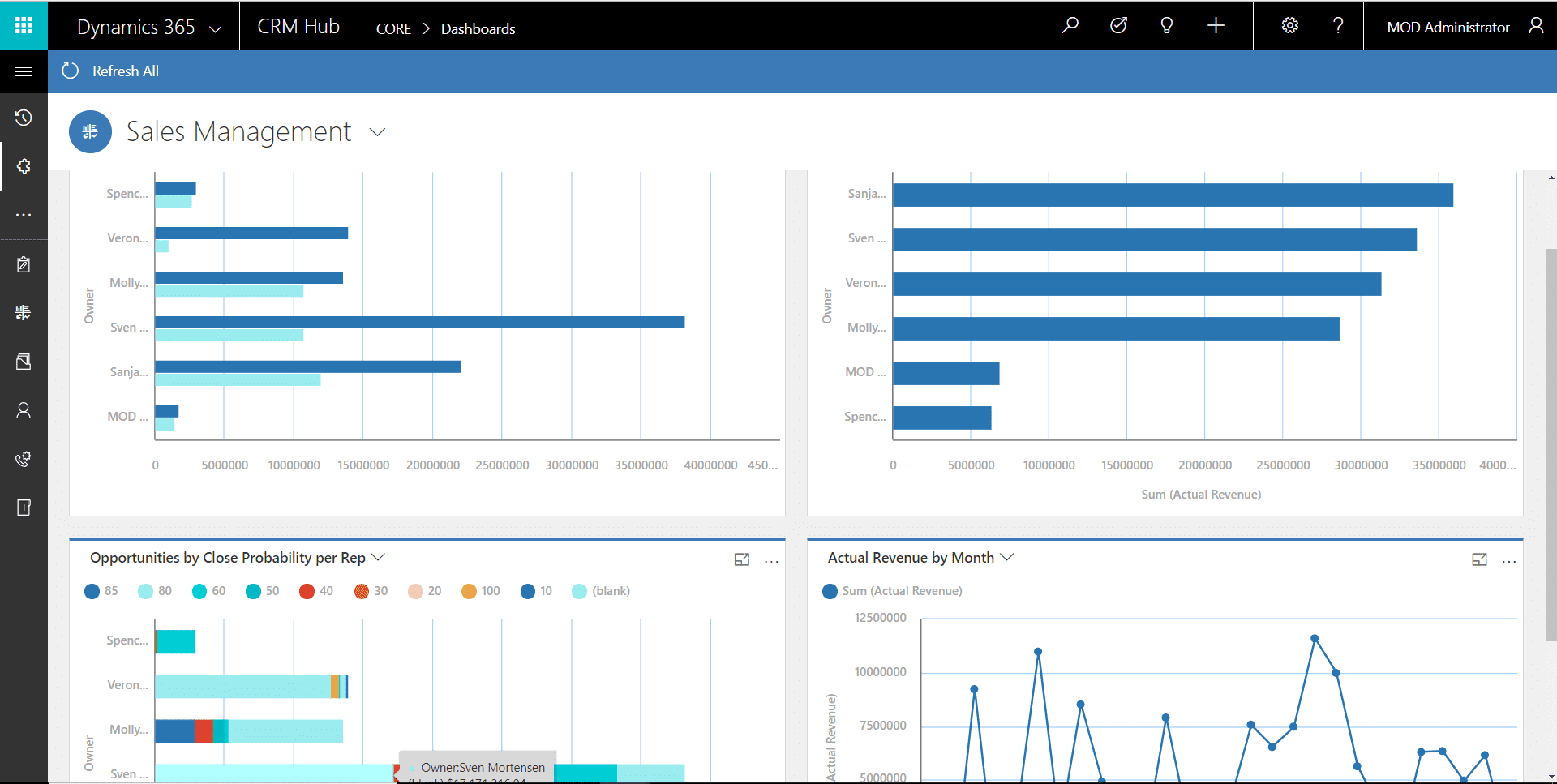
| ERP Software | Modules and Functionality | Number of Customers | Number of Reviews | Minimum Cost | Deployment Options |
|---|---|---|---|---|---|
|
Oracle NetSuite |
Financial Management: General Ledger, Accounts Receivable, Accounts Payable, Fixed Assets, Revenue Recognition; Procurement: Purchase Orders, Vendor Management, Requisition Management, Inventory Management; Inventory Management: Inventory Control, Warehouse Management, Supply Chain Management; CRM: Sales Force Automation, Marketing Automation, Customer Service Management; HR: Employee Records, Time and Expense Tracking, Payroll Management; Ecommerce: Web Storefront, Order Management, Payment Processing | 24,000+ | 970 | $999/month | Cloud |
|
SAP Business One |
Financial Management: General Ledger, Accounts Payable, Accounts Receivable, Fixed Assets; Sales and Customer Management: Sales Orders, Invoicing, Opportunities, Customer Management; Inventory Management: Inventory Control, Goods Receipts and Issues, Production Orders; Purchasing: Purchase Orders, Vendor Management; Analytics and Reporting: Dashboards, KPIs, Crystal Reports; Service Management: Service Contracts, Service Calls, Customer Management; HR: Employee Records, Time Tracking, Payroll | 70,000+ | 860 | $1,500/year | Cloud or On-Premise |
|
Microsoft Dynamics 365 BC |
Financial Management: General Ledger, Accounts Payable, Accounts Receivable, Fixed Assets; Sales and Marketing: Sales Orders, Invoicing, Opportunities, Campaign Management, Customer Management; Purchasing and Inventory: Purchase Orders, Vendor Management, Inventory Control, Warehouse Management; HR: Employee Records, Time and Expense Tracking, Payroll Management; Manufacturing: Bill of Materials, Production Orders, Capacity Planning; Service Management: Service Contracts, Service Orders, Customer Management; Analytics and Reporting: Dashboards, KPIs, Power BI | 200,000+ | 1,030 | $70/user/month | Cloud or On-Premise |
|
Infor CloudSuite Industrial |
Financial Management: General Ledger, Accounts Payable, Accounts Receivable, Fixed Assets; Supply Chain Management: Inventory Control, Warehouse Management, Demand Planning, Procurement; Human Capital Management: Employee Records, Time and Attendance, Payroll Management, Benefits Administration; Project Management: Resource Management, Time and Expense Tracking, Budgeting | 68,000+ | N/A | N/A | Cloud |
|
Epicor ERP |
Financial Management: General Ledger, Accounts Payable, Accounts Receivable, Fixed Assets, Cash Management; Production Management: Bill of Materials, Job Costing, Quality Management, Manufacturing Execution, Production Planning and Scheduling; Supply Chain Management: Inventory Control, Purchase Management, Materials Requirement Planning, Supplier Relationship Management; Sales Management: Sales Orders, Pricing, Quotes, Order Management; Service Management: Service Orders, Contracts, Warranty Management | 20,000+ | 490 | N/A | Cloud or On-Premise |
|
Plex ERP |
Manufacturing Execution System (MES): Production Control, Quality Management, Shop Floor Integration; Supply Chain Management: Inventory Control, Purchasing, Shipping and Receiving, Demand Planning; Financial Management: General Ledger, Accounts Payable, Accounts Receivable, Fixed Assets, Cash Management; Sales Management: Sales Orders, Pricing, Quotes, Order Management; Human Capital Management: Employee Records, Time and Attendance, Payroll Management, Benefits Administration | ||||
| Acumatica | Financial Management, CRM, Distribution Management, Manufacturing Management, Project Accounting, Field Service, E-Commerce | 6,000+ | 600+ | $12,000/year | Cloud, On-Premises |
| Sage X3 | Financial Management, Supply Chain Management, Manufacturing Operations, CRM, HR Management, Business Intelligence, E-Commerce | 7,000+ | 400+ | $30,000/license | Cloud, On-Premises |
| SYSPRO | Financial Management, CRM, Distribution Management, Manufacturing Management, E-Commerce, Human Resources, Business Intelligence | 15,000+ | 500+ | $20,000/license | Cloud, On-Premises |
| SAP Business ByDesign | Financial Management, CRM, HR Management, Project Management, Manufacturing Management, E-Commerce, Supply Chain Management, Analytics | 4,000+ | 200+ | $20,000/year | Cloud |
| Odoo | Financial Management, CRM, Manufacturing Management, E-Commerce, Project Management, HR Management, Website Builder, Inventory Management, Marketing Automation, POS | 50,000+ | 2,000+ | $6/user/month | Cloud, On-Premises |
| QAD ERP | Financial Management, Manufacturing Management, Supply Chain Management, CRM, E-Commerce, Analytics, Demand and Supply Planning, Quality Management, Asset Management | 2,000+ | 100+ | $40,000/license | Cloud, On-Premises |
What is the best ERP for manufacturing in 2021?
We review the best ERP software for manufacturing? We compare and rank the best ERP software for manufacturers in 2021 including SAP Business One, Netsuite, Infor & more.
ERP Requirements Gathering (RFI, RFP) Template Excel
Start your ERP evaluation process with our RFI & RFP Excel template for the engineering industry.
ERP Project Budget Calculator Template
Calculate the costs of your manufacturing ERP project with our prebuilt budget calculator.
Aerospace and Defence Manufacturing ERP Modules & Functionality
The top ERP software for manufacturers can include a variety of modules and functionalities that allow manufacturing companies to scale and be more efficient. We review some of the key functionality for the best manufacturing ERP software below:
Accounting and Financials
The best ERP for manufacturing has to include accounting and financials capabilities across multiple geographies and business units.
Purchasing
Purchasing needs to be controlled and the best ERP software for manufacturing allows you to do just this.
Supply Chain Management
Manage your supply chain effectively and deal with common issues in the manufacturing industry using SCM capabilities.
Production
Plan your supply chain and manage your manufacturing process in one wholistic ERP system including bill of materials management and kits.
Engineering Management
Manufacturing ERP software needs tight engineering capabilities to quickly iterate products whilst maintaining efficiencies.
Inventory Management
ERP systems for manufacturing allow for real time insights into inventory levels across your organization to drive efficiency.
Asset Management
Manage business assets with ERP for manufacturing to easily capitalise and monitor your assets.
Reporting and dashboards
Develop a single view of your manufacturing business in order to increase transparency, decision-making and ultimately drive results.
Customer Service
Customer service is a crucial part of top ERP software for manufacturing. Tie in data across production, sales and more with manufacturing ERP.
Shop Floor Management
Managing your shop floor effectively is key to providing a robust ERP system for manufacturing.
Customisation
Flexible ERP software that's built on an open and extensible foundation, allowing you to choose the features that suit your business needs.
Mobility
Access your ERP data at any time so you're more available to customers and take advantage of unexpected opportunities as they surface.
Development tools
ERP software for the manufacturing industry features all of the tailored solutions an organization needs to design, build and document their projects faster.
Updates and maintenance
Backed by the consistency of market-leading vendors, ERP software regularly updates to ensure an optimal user experience.
Versatile deployments
Connects customers, partners, and employees through real-time digital relationships to improve the way you do business.
Unlimited support
ERP implementation is a longterm strategic partnership and vendors provide free unlimited technical support for clients.
ERP for Aerospace & Defence Industry Guide
Below we answer some of the most frequently asked questions around aerospace ERP:
What is ERP and how is it relevant to the aerospace and defense industry?
ERP, or Enterprise Resource Planning, is a business process management software that allows an organization to use a system of integrated applications to manage the business and automate many back office functions related to technology, services, and human resources. For the aerospace and defense industry, it’s crucial in terms of managing complex supply chains, maintaining compliance with strict regulations, ensuring on-time delivery, and managing large, intricate projects efficiently.
What are the key features to look for in an ERP system for the aerospace and defense industry?
Key features to consider include project management capabilities, supply chain management, quality control systems, financial management, compliance modules for industry-specific regulations, and the ability to handle complex manufacturing processes. Real-time data analysis, integration capabilities with other software, and robust security measures are also crucial.
How does an ERP system improve efficiency in the aerospace and defense industry?
An ERP system improves efficiency by automating processes, providing real-time data for informed decision making, and integrating all functions into a single system. This reduces errors, eliminates manual data entry, and allows for more efficient resource allocation. It also streamlines supply chain management, which is critical for timely delivery of aerospace and defense projects.
How can ERP help with compliance in the aerospace and defense industry?
Given the strict regulations in the aerospace and defense industry, an ERP system can help companies maintain compliance by providing a single source of truth for all data, maintaining necessary documentation, tracking changes, and ensuring quality control. It can also automate compliance reporting, reducing the risk of human errors.
What is the role of ERP in supply chain management for aerospace and defense companies?
ERP plays a critical role in supply chain management by providing a centralized platform to manage all aspects from procurement to delivery. It offers real-time tracking of inventory and resources, supplier management, demand forecasting, and logistics planning. It ensures all parts of the supply chain are connected, reducing inefficiencies and improving responsiveness to changes.
How does ERP contribute to risk management in the aerospace and defense sector?
ERP systems can help identify and mitigate risks by providing real-time data and predictive analytics. They can flag potential supply chain disruptions, project delays, cost overruns, and compliance issues. ERP systems also enhance security, crucial for protecting sensitive data in the aerospace and defense industry.
What challenges might an aerospace and defense company face when implementing an ERP system?
Challenges can include resistance to change from employees, the need for extensive training, the complexity of data migration, and the time and cost of implementation. It's also crucial to choose an ERP system that is a good fit for the specific needs of the company and the industry, which can be a challenge in itself.
How can an ERP system help in reducing costs in the aerospace and defense industry?
ERP systems can help reduce costs by improving efficiency, reducing errors, and providing data to inform decision making. They can streamline processes, reduce inventory through better management, and improve the utilization of resources. The analytical capabilities of ERP systems can also help identify areas where cost savings can be made.
How does ERP software need to comply with regulations and compliance measures in the aerospace industry?
Enterprise Resource Planning (ERP) software plays a crucial role in helping aerospace companies maintain compliance with various industry-specific regulations. Here are a few ways how ERP systems facilitate compliance:
1. Data Accuracy and Consistency: Aerospace companies deal with vast amounts of data, and ERP systems ensure data accuracy and consistency by providing a single source of truth for all information. This is crucial in maintaining compliance with regulations that require accurate record-keeping.
2. Quality Control: Many regulations in the aerospace industry revolve around quality assurance. ERP systems help manage quality control processes, track inspections, document testing results, and initiate corrective actions when required. These systems ensure adherence to stringent quality standards like AS9100 for the aerospace industry.
3. Documentation and Traceability: ERP systems can help maintain necessary documentation and ensure full traceability of all processes, from design and production to maintenance and service. This ability is vital for compliance with regulations requiring complete and detailed documentation.
4. Regulatory Reporting: Aerospace companies often need to provide detailed reports to regulatory bodies. ERP systems can automate this reporting process, using the data they hold to generate necessary reports quickly and accurately, reducing the risk of errors that could lead to non-compliance.
5. Change Management: Regulations often require that any changes to processes or designs be fully documented and controlled. ERP systems provide tools for change management, ensuring that all changes are logged, approved, and traceable.
6. Security and Data Protection: Aerospace companies deal with sensitive data, and regulatory bodies often have strict requirements for data protection. ERP systems come equipped with robust security measures to protect data, including user access controls, data encryption, and audit trails.
7. Compliance with Export Laws: The aerospace and defense sector often involves dealing with strict export control laws, such as ITAR (International Traffic in Arms Regulations) and EAR (Export Administration Regulations). An ERP system can manage and control data access, flagging potential compliance issues and ensuring only authorized personnel have access to specific information.
In short, while the ERP software itself doesn't "comply" with regulations, it is designed to provide the tools and processes that make it easier for an aerospace company to stay compliant with industry regulations and standards.
Start Your ERP Journey With ERP Research
We help manufacturing firms to prepare for ERP change by guiding them through each stage of the process:
-
Build An ERP Business Case 2-3 weeksA solid business case is a foundation you need if you are going to persuade your organization to consider enterprise resource planning (ERP) implementation. Download Business Case Template
-
Compare ERP Vendors 2-3 weeksIt’s critical to understand which ERP vendor is right for your business. Before you decide on the vendor for your company, take a look at our solution pages to find out which vendor would be best. Compare ERP Vendors
-
Get Pricing Estimates 1-2 weeksOur exclusive process removes all the salesmen from the equation and gets you real pricing estimates from every qualified vendor. Contact Us For Pricing
-
Organize A Solution Demo 1-2 weeksDuring a demo, you will learn about how large corporations are making use of ERP software and how they are improving their business practices. Book A Demo
-
Build ERP Requirements 3-4 weeksIf you're looking to buy an Enterprise Resource Planning (ERP) system or upgrade your internal systems you will need a clear definition of all the functions, features and capabilities that you expect. You can approach this challenge by building what's called an ERP requirements document. Download ERP Requirements Template
-
Shortlist 4-8 Vendors 1 weekOne of the most important phases in the ERP project lifecycle is selecting the right software vendor. Ideally, you should shortlist 4-8 vendors - based on their credentials and your requirements. Contact Us To Shortlist Vendors
Find & Compare ERP Software for Aerospace & Defence
Use our free tool to find and compare the market leading ERP software and solutions for manufacturing. See how ERP system solutions including Oracle NetSuite, Epicor, Infor & SAP Business One stack up against the competition.
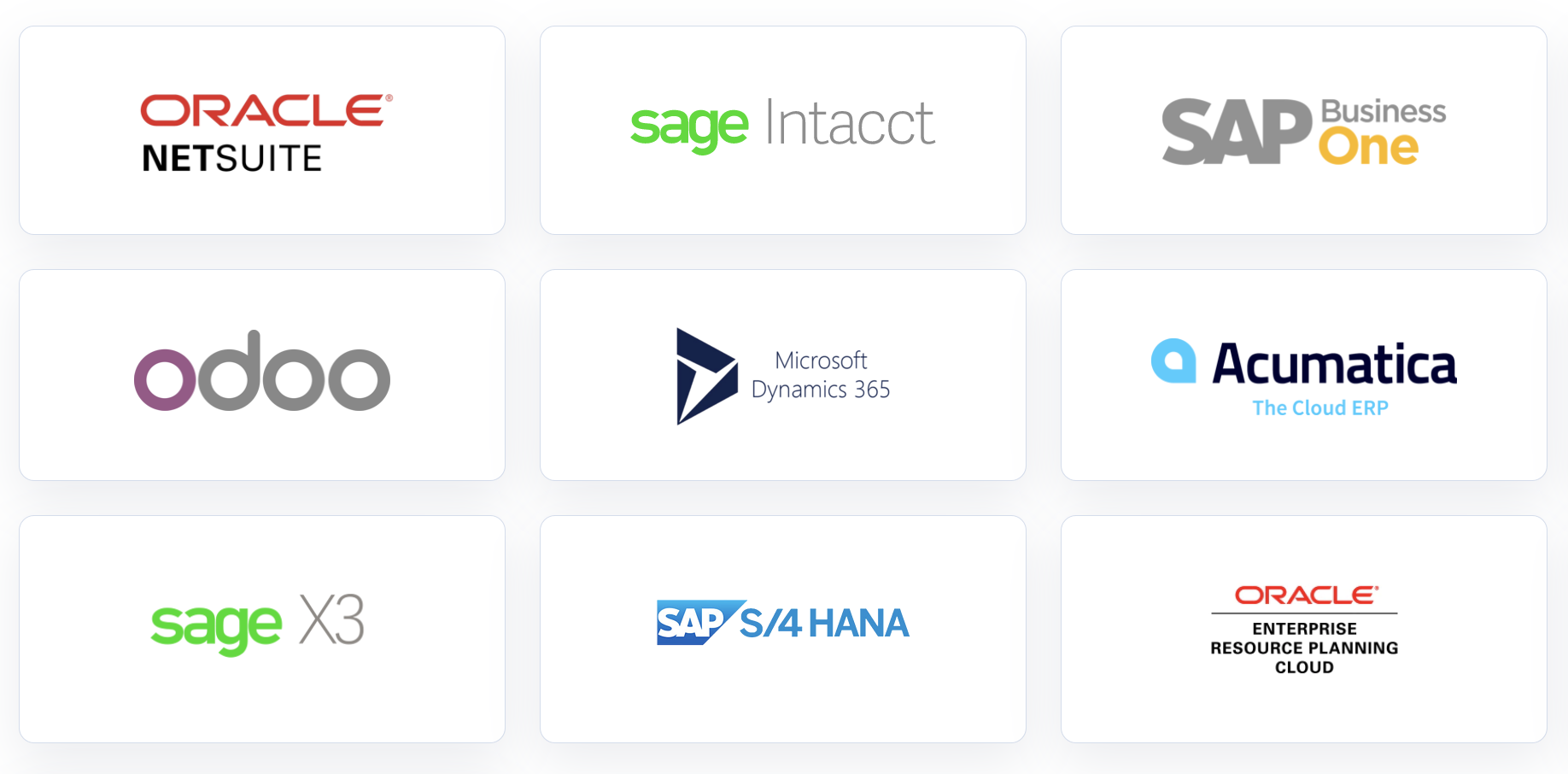











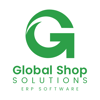


.png?width=278&name=sap-s-4hana-logo%20(2).png)















